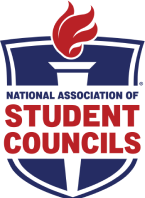Leadership development is a lifelong journey, not a brief trip. Your officers are beginning their own personal journey of leadership. To help them, here is an outline of skills to clarify expectations for each role. Advisers can also get advice for transitioning from outgoing officers and onboarding newcomers.
Also, here are a few things that all officers will need to know. Familiarize your officers with the following:
- What a student council can and must be for your school.It may be easier just to keep doing what the council has always done. But most of the time that isn’t what makes the best Councils can differ greatly from school to school so look to student councils in your local or state area for some ideas of how their councils work. Suggest your officers adapt some of their ideas for your school. Network with other local council peers.
- The purposes and history of student council.Why does student council exist? What should it accomplish? Check out National Student Council’s website and also your state association’s website (which can be found through the NatStuCo website) for ideas in this area.
- The relevant policies of your school district.Explain that your school principal and the student council adviser are excellent resources for these policies. They will need to know and understand the rules that govern what student activity groups can and cannot do.
- The constitution of your student council and the limits of council authority.Check to be sure that current practices are in line with what’s written in your constitution. If they don’t coincide, either revise the constitution or change your practices to match what is written.
- The function of the adviser in the council.Explain that as the adviser, you will be a great resource. Be sure your officers meet with you to establish expectations for their term in office and develop a productive working relationship.
- How to utilize individual talents and abilities of fellow students.Learn basic personality traits and how to recognize them in themselves and others to work together more effectively. Try the True Colors assessment to understand personality styles.
Skills and Behaviors
All officers also need to have:
- A positive attitude about themselves and their own worth, as well as the worth of others and of authority figures.
- The ability to listen.
- The ability to stimulate group spirit with an awareness of consequences.
- Self-discipline, self-knowledge, and self-determination.
- Patience, an open mind, and a willingness to reach consensus in decisions.
- The ability to delegate responsibility, share authority, and follow up without intimidation.
- Organizational skills or a great planning and scheduling program.
- Enthusiasm and dedication.
The Student Leader’s Code of Ethics
Student council leaders are public officials who must hold themselves to a high standard because they serve as role models for other students. It they are to lead effectively and hold the confidence and respect of those they serve, their conduct must conform to an ethical code. An ethics code is a set of guidelines that serves as a guidepost for the day-to-day behavior of persons holding leadership positions.
Each school should develop its own code of ethical conduct for student leaders. Respect, responsibility, trustworthiness, fairness, caring, and citizenship are the basis for an ethical code, which could include items such as those found on the following list.
As a student leader I will:
- Be courteous, honest, and fair with others.
- Treat others with respect and I will act with respect for the property of others.
- Communicate in an appropriate, purposeful, and positive manner.
- Appreciate and promote diversity in student council.
- Develop positive relationships with students, advisers, teachers, and administrators.
- Respect that the position I hold carries certain privileges and I will avoid any abuse of authority arising from my role.
- Conduct myself at all times to be a credit to my organization, school, community, and family.
No written formulas can cover all of the challenges that may face student leaders. Your council leadership should develop an expectation that student leaders will exercise good judgment and take personal responsibility for decisions that impact their ability to serve as leaders. (For more on developing an ethics code, see the Student Council Handbook.)
For specific information related to each office, share the following information with each office holder.
